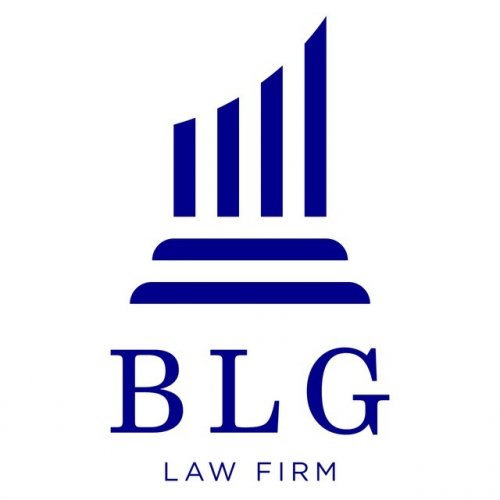Best Debt & Collection Lawyers in Uzbekistan
Share your needs with us, get contacted by law firms.
Free. Takes 2 min.
Or refine your search by selecting a city:
List of the best lawyers in Uzbekistan
About Debt & Collection Law in Uzbekistan
Debt and collection laws in Uzbekistan regulate the methods and rights of creditors to collect debts owed by individuals or businesses. The legal framework ensures that the process of debt collection is fair, transparent, and respects the rights of debtor and creditor alike. In Uzbekistan, debt collection is governed by civil codes and, where applicable, insolvency legislation that provides a structured approach towards resolving payment disputes.
Why You May Need a Lawyer
There are numerous situations where legal assistance can be invaluable when dealing with debt and collection matters in Uzbekistan:
- Negotiating settlements or repayment plans with creditors.
- Understanding your rights and obligations as either a debtor or creditor.
- Resolving disputes regarding the amount owed or the terms of a debt agreement.
- Handling harassment or illegal practices by debt collectors.
- Defending against debt collection lawsuits.
- Assisting with bankruptcy proceedings if debts become unmanageable.
Local Laws Overview
Uzbekistan's legal system provides several statutes and regulations relevant to debt and collection, including:
- The Civil Code of the Republic of Uzbekistan, which outlines the general principles of the obligations and rights of parties in debt agreements.
- The Law on Bankruptcy, which establishes procedures for insolvency and how debts are handled when a debtor is unable to meet their obligations.
- Consumer protection laws that guard against unfair practices in debt collection.
- Specific regulations that oversee the activities of collection agencies, ensuring they operate within legal boundaries.
Frequently Asked Questions
What is the legal interest rate for debts in Uzbekistan?
Interest rates in Uzbekistan may vary depending on the type of agreement and prevailing economic conditions. It’s important to check with recent legislative updates to know the exact rate applicable to specific loans or debts.
Can creditors garnish wages in Uzbekistan?
Yes, creditors can seek a court order to garnish wages if a debtor fails to fulfill payment obligations. However, there are limits on the percentage of wages that can be garnished to protect the debtor's necessary living expenses.
What should I do if I am being harassed by a debt collector?
If you are facing harassment, you can file a complaint with local authorities such as the Ombudsman or consumer protection agencies. Documentation of all interactions with the collector is essential for your defense.
How long does a creditor have to collect a debt in Uzbekistan?
The statute of limitations on debt collection can vary. Generally, it is between 3 to 5 years, but specific circumstances and agreements could affect this period.
What happens if I ignore a debt collection notice?
Ignoring debt collection notices can lead to further legal action, including lawsuits or enforced collection methods such as asset seizure. It’s advisable to address such notices promptly.
Can I negotiate debt terms with a creditor in Uzbekistan?
Yes, negotiating terms such as the repayment schedule or interest rate is possible, especially if you demonstrate a willingness to repay the debt under different terms.
What are the consequences of defaulting on a loan in Uzbekistan?
Consequences can include legal action, damage to credit rating, additional fees or penalties, and potentially entering bankruptcy proceedings.
Are collection agencies regulated in Uzbekistan?
Yes, collection agencies are regulated under Uzbekistan’s legal framework ensuring that their operations are legal and ethical. They must adhere to national standards and registration requirements.
Can a lawyer help stop wage garnishments?
A lawyer might help by negotiating with creditors to arrange alternative payment plans or by assisting in court to challenge the garnishment order if due process has not been followed.
What documentation should I gather for a debt dispute?
Collect all written communication, contracts, loan agreements, payment receipts, and any correspondence with the creditor or collection agency to build a strong defense or negotiation case.
Additional Resources
If you are seeking further information or assistance regarding debt and collection, consider reaching out to:
- The Chamber of Commerce and Industry of Uzbekistan.
- Local Bar Associations offering legal aid and advice.
- Government consumer protection offices for assistance with disputes and complaints.
- Non-governmental organizations that specialize in consumer rights and financial literacy.
Next Steps
If you find yourself in need of legal assistance with debt and collection issues in Uzbekistan, consider taking the following steps:
- Gather all relevant documentation and information about your debt situation.
- Contact a legal expert specializing in debt and collections for a consultation.
- Explore mediation or negotiation as a first step to resolving disputes.
- Remain informed of your rights and responsibilities throughout the process.
- Seek alternatives such as financial counseling to better manage and understand your financial situation.
Lawzana helps you find the best lawyers and law firms in Uzbekistan through a curated and pre-screened list of qualified legal professionals. Our platform offers rankings and detailed profiles of attorneys and law firms, allowing you to compare based on practice areas, including Debt & Collection, experience, and client feedback.
Each profile includes a description of the firm's areas of practice, client reviews, team members and partners, year of establishment, spoken languages, office locations, contact information, social media presence, and any published articles or resources. Most firms on our platform speak English and are experienced in both local and international legal matters.
Get a quote from top-rated law firms in Uzbekistan — quickly, securely, and without unnecessary hassle.
Disclaimer:
The information provided on this page is for general informational purposes only and does not constitute legal advice. While we strive to ensure the accuracy and relevance of the content, legal information may change over time, and interpretations of the law can vary. You should always consult with a qualified legal professional for advice specific to your situation.
We disclaim all liability for actions taken or not taken based on the content of this page. If you believe any information is incorrect or outdated, please contact us, and we will review and update it where appropriate.
Browse debt & collection law firms by city in Uzbekistan
Refine your search by selecting a city.











